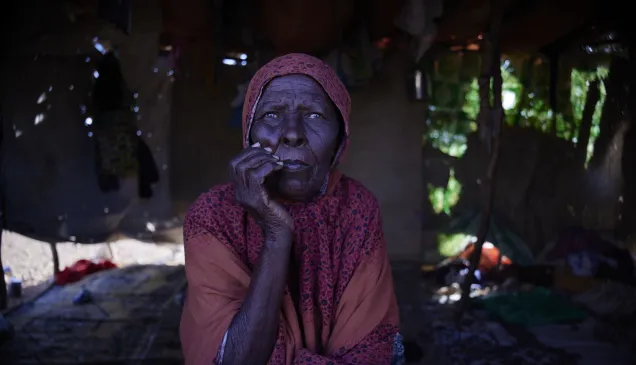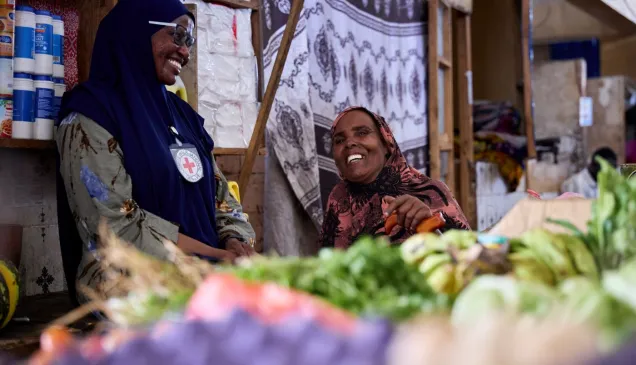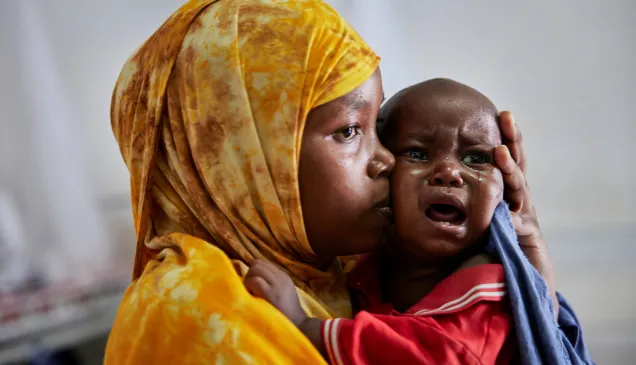The fishing industry in Somalia presents a viable alternative for many who have lost their livelihoods due to the prolonged drought in the country. The trade supports many including those who offload the catch from the boats and take them ashore. Two men in Kismayo’s Alanley beach carry fish to the shore.
Somalis fish for new income sources amid worsening drought
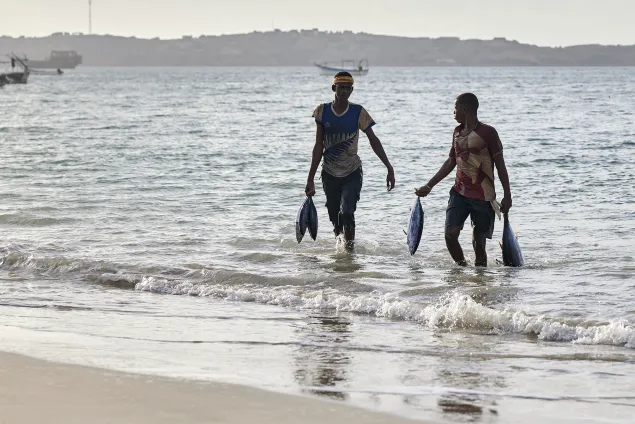
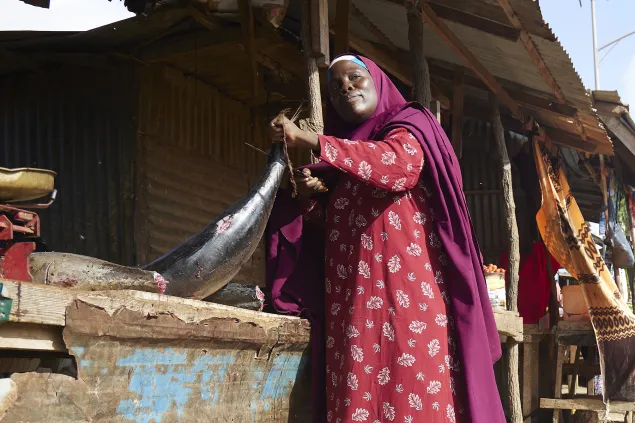
Some of the displaced people in Dalhiska camp in Kismayo sell fish as a means of sustaining their families. Their day starts early with a trip to the beach and the markets to buy fresh fish. Maryan Abdullahi cleans and guts the fish in preparation for customers at her stall in Dalhishka IDP camp.
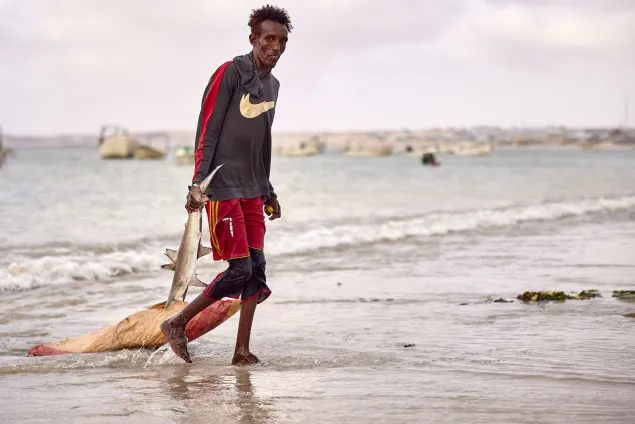
Hassan Farah Abdi, nicknamed Simba, is popular among the fisherfolk in Alanley beach. With a sack with fish in tow, he sells his catch to buyers who wait on the beach.
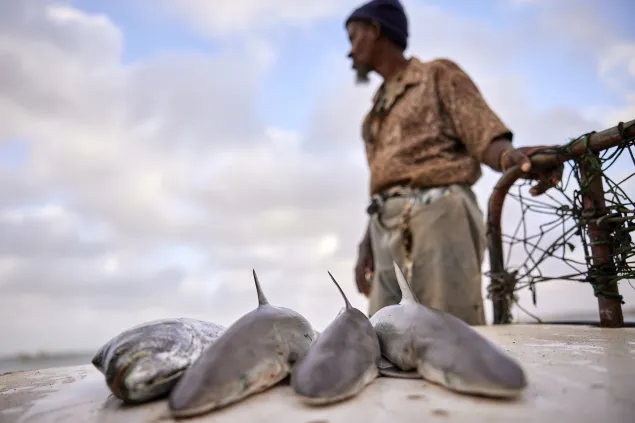
You will spot a number of people with handcarts in Somalia’s beaches. Some offer transport services to ferry fish to the market while others buy the fish and peddle them in town.
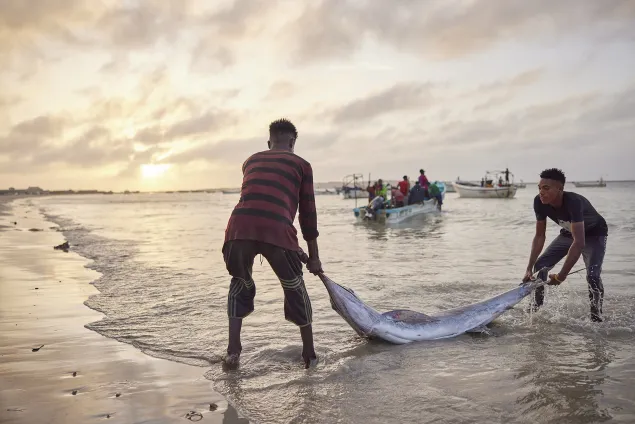
A total of 25 fishing boats, 25 engines, 150 fishing kits that include gill nets, hooks, hook lines and ropes were provided to 250 families who ply the trade in Kismayo, Mogadishu, Ceel Macaan and Bosaso.
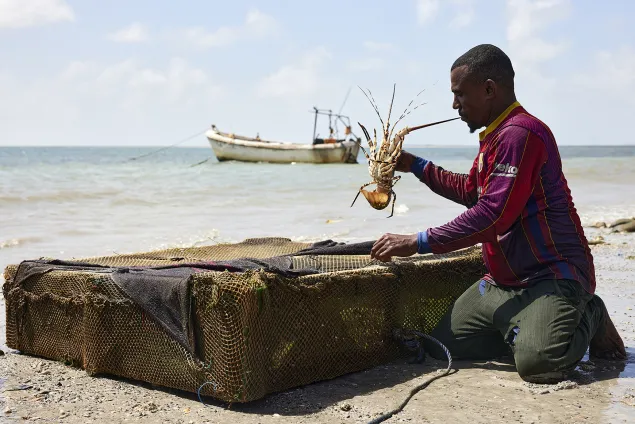
Lobsters are another delicacy caught here. They are mainly for export as the steep retail price is out of reach for most locals. A live lobster weighing a kilo sells for about $30.
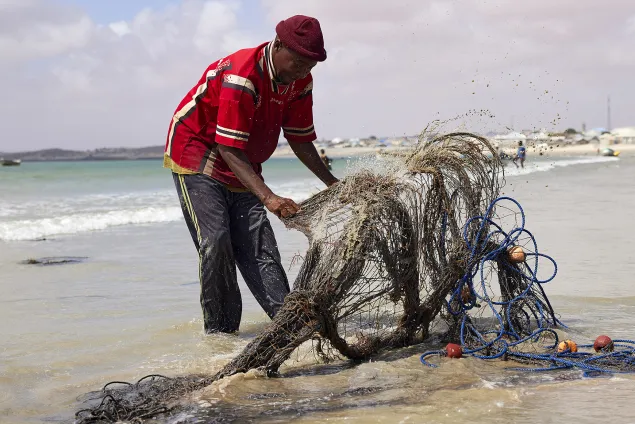
A fisherman rinses his fishing net at the Alanley beach after completing the day’s work. Nets were part of the fishing equipment distributed by the ICRC.
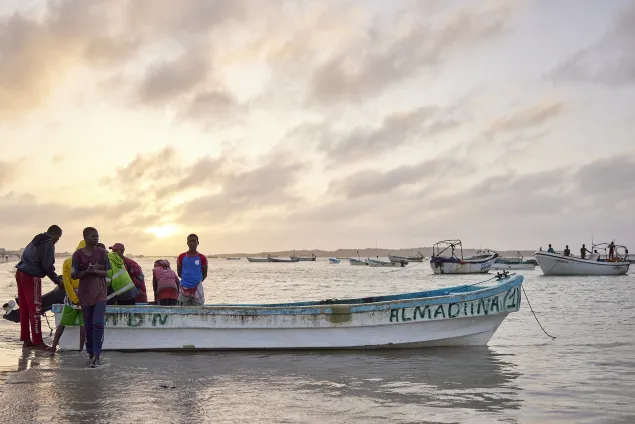
While fishing remains a viable alternative for many Somalis, rising fuel prices have negatively impacted operational costs.
Almost 6.5 million Somalis are facing a food crisis amid a three year drought and the escalation of protracted armed conflict. Farmers and herders have seen their livelihoods decimated by the long dry spells. With an anticipated sixth consecutive season of below-average rainfall looming and the fertile land available shrinking, fishing remains a viable alternative source of income for many. Somalia has the longest coastline in mainland Africa, stretching over 3,000km, and more people are turning their sights to the sea looking for a better future for themselves and their children.
The International Committee of the Red Cross (ICRC) supported 250 families in Mogadishu, Bossaso, Middle Shabelle and Lower Juba with boats, engines, solar refrigerators and fishing equipment.
"We try to prop up already existing businesses to cushion them from the adverse effects of the drought and rising food and fuel costs," explains Maslah Hassan who works for the ICRC's livelihood programs in Lower Juba region.

